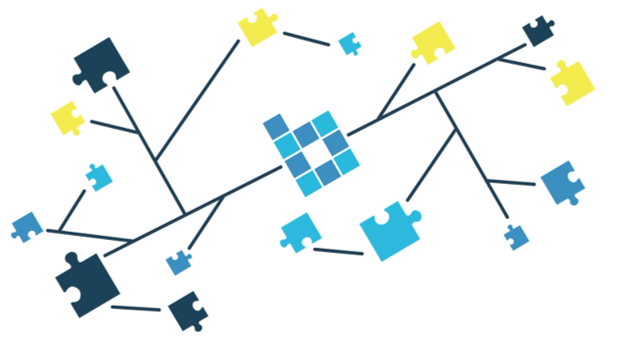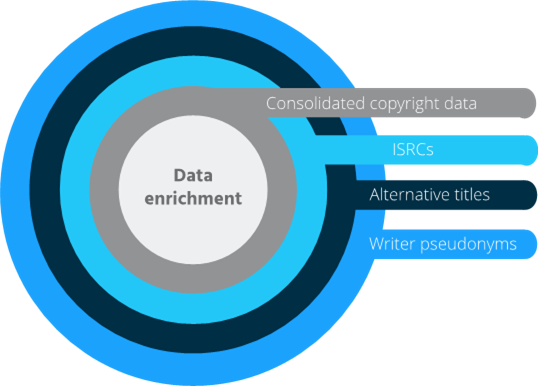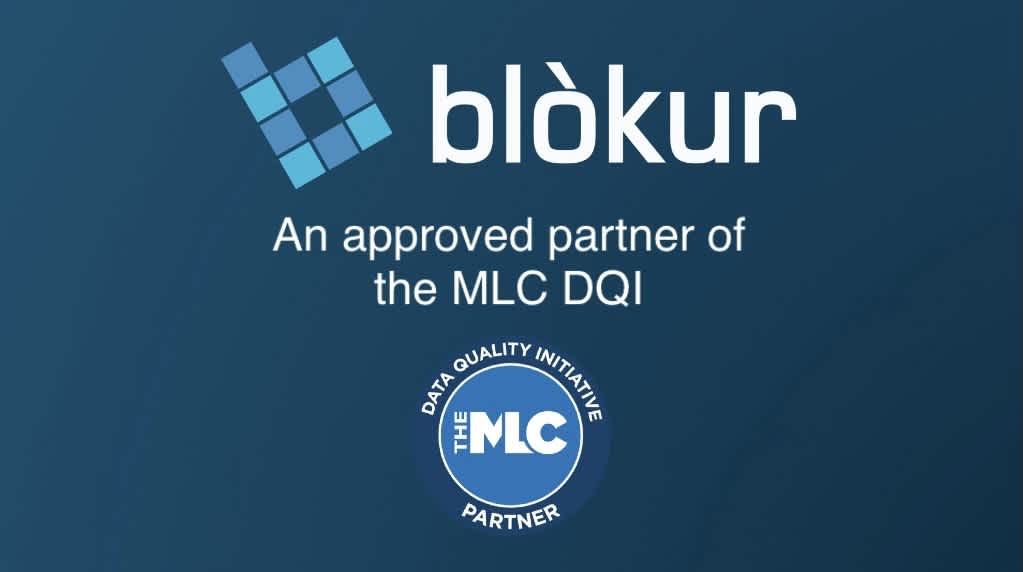PLEASE READ THESE TERMS CAREFULLY
Below are set out the terms and conditions that apply to use of the Platform (the “Terms and Conditions”). By checking the box “I have read and accept the Terms and Conditions” and clicking “Submit” when registering to use the Platform:
(a) you warrant, represent and undertake that you, or the legal entity on whose behalf you are registering to use the Platform and who you have identified in the Registration Form (as defined below), intend to, and shall, use the Platform for business purposes only;
(b) if you have identified a legal entity on whose behalf you are registering to use the Platform in the Registration Form, then you warrant, represent and undertake that: (i) you have sufficient capacity, power, authority and right to enter into an agreement based on the Terms and Conditions for and on behalf of that legal entity; and (ii) the information that you have provided in the Registration Form about yourself and the legal entity is true and accurate;
(c) if you have not identified a legal entity in the Registration Form, then you warrant, represent and undertake that the information that you have provided in the Registration Form about yourself is true and accurate; and
(d) you acknowledge and agree that: (i) you are making an offer on behalf of yourself or on behalf of the legal entity identified in the Registration Form (as applicable) to Blokur Limited (a company incorporated in England and Wales with registered office address 85 Great Portland Street, First Floor, London, England, W1W 7LT and company number 09920209) (“Blokur”) for Blokur to provide the Platform to you or such legal entity (as applicable) on these Terms and Conditions; (ii) Blokur shall be under no obligation to accept such offer; and (iii) only by sending a confirmation email to the email address that you specify in the Registration Form is Blokur accepting such offer, and a legal binding agreement shall be formed between you or the legal entity identified in the Registration Form (as applicable) and Blokur based on these Terms and Conditions upon such email being sent.
1. Definitions
1.1 The definitions and rules of interpretation in this clause apply in these Terms and Conditions.
“Authorised Users” means those employees, agents and independent contractors of the Licensee who are authorised by the Licensee to use the Platform, as further described in clause 3.1(c).
“Business Day” means a day other than a Saturday, Sunday or public holiday in England when banks in London are open for business.
“Controller”, “processor”, “data subject”, “personal data”, “personal data breach”, “processing” and “appropriate technical and organisational measures” have the meanings given to them in the GDPR.
“Data Protection Laws” means any applicable laws, orders and regulations relating to the processing, privacy, and use of personal data including: (i) EU Council Directive 2002/58/EC; (ii) the GDPR; (iii) any corresponding or equivalent national laws or regulations; or (iv) approved codes of conduct or approved certification mechanisms issued by any relevant regulatory authority.
“Effective Date” means the date on which Blokur accepts the Licensee’s registration request as set out above.
“GDPR” means the General Data Protection Regulation ((EU) 2016/679).
“Group” means, in respect of either party, its ultimate parent undertaking from time to time and all direct and indirect subsidiary undertakings from time to time of such ultimate parent undertaking, in each case involving control, directly or indirectly, by one entity of another entity or common control with the relevant party and where “control” means: (i) the ownership or control (directly or indirectly) of more than fifty percent (50%) of the fully diluted voting share capital of the relevant entity; and/or (ii) the ability to direct the casting of more than fifty percent (50%) of the fully diluted votes exercisable at meetings of the relevant entity on all, or substantially all, matters; and/or (iii) the right to appoint or remove directors of the relevant entity holding a majority of the voting rights at meetings of the board of directors on all, or substantially all, matters.
“Initial Subscription Term” means initial subscription term of the subscription, as set out in the Subscription Details Form.
“Licensee” means: (a) where a legal entity has been identified in the Registration Form, that legal entity; and (b) where a legal entity has not been identified in the Registration Form, the individual who completed the Registration Form;
“Licensee Data” has the meaning given in clause 4.1.
“Other User Data” has the meaning given in clause 4.5.
“Platform” means the ‘Blokur’ music rights conflict platform (including any updates thereto) and the associated services made available by Blokur from time to time.
“Registration Form” means the “Registration Information” section of the registration process.
“Renewal Period” means the period for which the term of the Subscription shall renew the following expiry of the Initial Subscription Term, as set out in the Subscription Details Form.
“Subscription” means the subscription to the Platform to which these Terms and Conditions apply, the details of which are set out in the Subscription Details Form.
“Subscription Details Form” means the “Subscription Details” page of the registration process.
“Subscription Fees” means the subscription fees payable by the Licensee to Blokur for the Subscription, as set out in the Subscription Details Form.
“Subscription Term” has the meaning given in clause 11.1 (being the Initial Subscription Term together with any subsequent Renewal Periods).
“Virus” means anything or device (including any software, code, file or programme) which may: (i) prevent, impair or otherwise adversely affect the operation of any computer software, hardware or network, any telecommunications service, equipment or network or any other service or device; (ii) prevent, impair or otherwise adversely affect access to or the operation of any programme or data, including the reliability of any programme or data (whether by re-arranging, altering or erasing the programme or data in whole or part or otherwise); (iii) or adversely affect the user experience, including worms, trojan horses, viruses and other similar things or devices.
“Vulnerability” means a weakness in the computational logic (for example, code) found in software and hardware components that when exploited, results in a negative impact to the confidentiality, integrity, or availability, and the term “Vulnerabilities” shall be construed accordingly.
1.2 Clause headings shall not affect the interpretation of these Terms and Conditions.
1.3 A person includes an individual, corporate or unincorporated body (whether or not having separate legal personality).
1.4 A reference to a company shall include any company, corporation or other body corporate, wherever and however incorporated or established.
1.5 Unless the context otherwise requires, words in the singular shall include the plural and in the plural shall include the singular.
1.6 Unless the context otherwise requires, a reference to one gender shall include a reference to the other genders.
1.7 References to clauses are to the clauses of these Terms and Conditions. 2. Provision of Platform
2.1 The type of Subscriptions available and the corresponding access and functionality of the Platform is as follows:
(a) Music User – this Subscription type allows the Licensee to search for songs and identify individuals that hold an interest in such songs.
(b) Free Music Publisher – this Subscription type allows music publishers to list songs and the individuals that hold interest in these songs and receive updates where a conflict with the ownership identified by another music publisher user is identified.
(c) Upgraded Music Publisher – this Subscription type allows music publishers to list songs and the individuals that hold interest in these songs and receive updates where a conflict with the ownership identified by another music publisher user is identified and to take advantage of such additional services as are set out in the Subscription Details Form.
(d) The type of Subscription to which these Terms and Conditions shall apply shall be that which is set out in the Subscription Details Form.
2.2 Subject to the Licensee complying with these Terms and Conditions and purchasing the Subscription in accordance with clause 7.1, Blokur hereby grants to the Licensee a non exclusive, non-transferable right, without the right to grant sublicences, to permit the Authorised Users to use the Platform (including the Other User Data) during the Subscription Term solely for its internal business operations.
2.3 The information made available to the Licensee via the Platform has been supplied to Blokur and is aggregated from a variety of third party sources (including other users of the Platform), and changes on a continual basis. Blokur does not warrant that the that the Platform and/or the information obtained by the Licensee through the Platform will meet the Licensee’s requirements
or that such information is accurate, complete, timely or reliable.
2.4 Blokur:
(a) does not warrant that the Licensee’s use of the Platform will be uninterrupted or error-free or that the Platform will be free from Vulnerabilities; and
(b) will not be responsible for any delays, delivery failures, or any other loss or damage resulting from the transfer of data over communications networks and facilities, including the internet, and the Licensee acknowledges that the Platform may be subject to limitations, delays and other problems inherent in the use of such communications facilities.
2.5 Blokur warrants that it has and will maintain all necessary licences, consents, and permissions necessary for the performance of its obligations under these Terms and Conditions.
2.6 The rights provided under this clause 2 are granted to the Licensee only, and shall not be considered granted to any subsidiary or holding company of the Licensee.
3. Use of the Platform
3.1 In relation to the Authorised Users, the Licensee undertakes that:
(a) it shall not provide access to the Platform to more Authorised Users than the stated number of concurrent users set out in the Subscription Details Form;
(b) each Authorised User shall keep a secure password for his use of the Platform, and that each Authorised User shall keep his password confidential;
(c) the Licensee shall maintain a written, up to date list of current Authorised Users and provide such list to Blokur within 5 Business Days of Blokur's written request at any time or times;
(d) the Licensee shall permit Blokur or Blokur's designated auditor to audit its use of the Platform in order to establish the name and password of each Authorised User and Blokur's data processing facilities to audit compliance with these Terms and Conditions. Each such audit may be conducted no more than once per quarter, at Blokur's expense, and this right shall be exercised with reasonable prior notice; and
(e) if any of the audits referred to in clause 3.1(d) reveal that the Licensee is in breach of clause 3.1(a), then without prejudice to Blokur's other rights, the Licensee shall pay an amount to Blokur equal to the difference in the Subscription Fees paid and the fee that would have been payable were the number of concurrent users set at the actual usage. Such amount shall be paid within 10 Business Days of Blokur’s request.
3.2 The Licensee shall not and shall procure that no Authorised User shall access, store, distribute or transmit any Viruses, or any material during the course of using the Platform that:
(a) is unlawful, harmful, threatening, defamatory, obscene, infringing, harassing or racially or ethnically offensive;
(b) facilitates illegal activity;
(c) depicts sexually explicit images;
(d) promotes unlawful violence;
(e) is discriminatory based on race, gender, colour, religious belief, sexual orientation, disability; or
(f) is otherwise illegal or causes damage or injury to any person or property,
and Blokur reserves the right, without liability or prejudice to its other rights to the Licensee, to disable the Licensee’s access and/or the access of any particular Authorised User should the Licensee and/or an Authorised User do so.
3.3 The Licensee shall not:
(a) except as may be allowed by any applicable law which is incapable of exclusion by agreement between the parties and except to the extent expressly permitted under these Terms and Conditions:
(i) attempt to copy, modify, duplicate, create derivative works from, frame, mirror, republish, download, display, transmit, or distribute all or any portion of the Platform in any form or media or by any means; or
(ii) attempt to de-compile, reverse compile, disassemble, reverse engineer or otherwise reduce to human-perceivable form all or any part of the Platform; or
(b) access all or any part of the Platform in order to build a product or service which competes with the Platform;
(c) use the Platform to provide services to third parties;
(d) subject to clause 17.1, license, sell, rent, lease, transfer, assign, distribute, display, disclose, or otherwise commercially exploit, or otherwise make the Platform available to any third party except the Authorised Users;
(e) attempt to obtain, or assist third parties in obtaining, access to the Platform, other than as provided under this clause; or
(f) introduce or permit the introduction of, any Virus or Vulnerability into Blokur's network and information systems.
3.4 The Licensee shall use all reasonable endeavours to prevent any unauthorised access to, or use of, the Platform and, in the event of any such unauthorised access or use, promptly notify Blokur.
4. Licensee Data and Other User Data
4.1 Where the Licensee’s Subscription is a Music Publisher Subscription (as identified in the Subscription Details Form), the Licensee may provide data to Blokur from time to time in relation to songs in which it has an interest (including the names of those individuals that have rights in such songs) (the “Licensee Data”).
4.2 The Licensee shall own all right, title and interest in and to all of the Licensee Data.
4.3 The Licensee hereby grants to Blokur and each member of its Group a worldwide, irrevocable, perpetual, non-exclusive, sub-licensable, transferable and royalty-free licence and right to use, copy, store and process the Licensee Data for the purposes of: (a) providing the Platform to the Licensee and discharging its obligations under these Terms and Conditions; and (b) providing the Platform to any and all other users of the Platform from time to time and discharging its obligations in respect of such other users.
4.4 The Licensee expressly acknowledges and agrees that the Licensee Data that it provides shall be made available to, and accessible by, any and all other users of the Platform.
4.5 Irrespective of the Licensee’s Subscription, through its use and receipt of the Platform, the Licensee acknowledges that it shall gain access to data provided to Blokur by other users of the Platform from time to time in relation to songs in which such users have an interest (including the names of those individuals that have rights in such songs) (the “Other User Data”).
4.6 As between the parties, Blokur shall own all right, title and interest in and to the Other User Data and grants the right to the Licensee to use the Other User Data pursuant to clause 2.2.
5. Data Protection
5.1 In this clause 5: (a) “Shared Data” means (to the extent it constitutes personal data) the Licensee Data and Other User Data; (b) “Disclosing Party” means the party making available the relevant Shared Data, being Licensee in respect of the Licensee Data and Blokur in respect of the Other
User Data; and (c) “Receiving Party” means the party to which the relevant Shared Data is made available, being the Licensee in respect of the Other User Data and Blokur in respect of the Licensee Data.
5.2 In respect of each party’s processing of the Shared Data as contemplated in these Terms and Conditions, each party shall be an independent controller. Accordingly, each party shall be separately liable for its own processing of such Shared Data and shall comply with Data Protection Laws in connection with the same.
5.3 The Licensee shall:
(a) ensure that any necessary notices have been made available to, and any necessary consents have been received from, the relevant data subjects to enable the lawful transfer of the Licensee Data to Blokur and Blokur’s (and its permitted sublicensees’) use of the Licensee Data as contemplated in these Terms and Conditions; and
(b) shall immediately notify Blokur if it becomes aware of any change or circumstance which will, may or is alleged to impact the lawfulness of any processing of the Shared Data by Blokur (including if a data subject withdraws any necessary consent or requests their Shared Data is no longer processed or is erased or if any of the Shared Data is not accurate or up-to-date), together with full details of the circumstances and (immediately once available) revised and corrected data.
5.4 Each party shall:
(a) not disclose or permit the disclosure of any Shared Data to any third party unless specifically agreed in advance by the Disclosing Party and only make such a disclosure subject to the third party being under obligations which are as protective of the Shared Data as those imposed on the Receiving Party under this clause 5. It is hereby agreed by Licensee that Blokur may share the Licensee Data with any member of its Group and any other user of the Platform from time to time;
(b) ensure that it has in place appropriate technical and organisational measures to protect against unauthorised or unlawful processing of personal data and against accidental loss or destruction of, or damage to, the Shared Data made available to it;
(c) maintain complete, accurate and up to date written records of all of its processing of the Shared Data made available to it and as necessary to demonstrate its compliance with this clause 5; and
(d) except as required by applicable laws, process each part of the Shared Data made available to it for no longer than such processing is necessary and compliant with Data Protection Laws.
5.5 The Receiving Party shall promptly notify the Disclosing Party if the Receiving Party suspects or becomes aware of any actual or threatened occurrence of any data breach in respect of any Shared Data made available to the Receiving Party. The Receiving Party shall promptly provide
all such assistance and information as the Disclosing Party requires to report any actual or suspected data breach to the competent data protection supervisory authority and to notify affected data subjects to the extent required under Data Protection Laws.
5.6 The Receiving Party shall promptly inform the Disclosing Party if it receives any complaint or requests directly from a data subject relating to any Shared Data made available to the Receiving Party. When receiving and responding to any such complaint or request the Receiving Party shall consult in advance with the Disclosing Party and promptly comply with the Disclosing Party’s reasonable instructions (if any).
5.7 Each party shall promptly co-operate with and provide reasonable assistance, information and records to the other to assist each party with their respective compliance with Data Protection Laws.
6. Licensee’s Other Obligations
6.1 The Licensee shall:
(a) without prejudice to its other obligations under these Terms and Conditions, comply with all applicable laws and regulations with respect to its use of the Platform;
(b) ensure that the Authorised Users use the Platform in accordance with the Terms and Conditions of these Terms and Conditions and shall be responsible for any Authorised User's breach of these Terms and Conditions;
(c) obtain and maintain all necessary licences, consents, and permissions necessary for Blokur and each member of its Group, and their respective contractors and agents to perform Blokur’s obligations under these Terms and Conditions; and
(d) ensure that its network and systems comply with the relevant specifications provided by Blokur from time to time.
7. Subscription Fees
7.1 The Licensee shall pay the Subscription Fees to Blokur for the Subscription in accordance with this clause 7. Where the Licensee has signed up for a Free Music Publisher Subscription, then no Subscription Fees will be payable.
7.2 Unless agreed otherwise, all payments of the Subscription Fee shall be made via debit or credit card. The Licensee shall, on the Effective Date, provide to Blokur valid, up-to-date and complete debit or credit card details and any other relevant valid, up-to-date and complete contact and billing details and, the Licensee hereby authorises Blokur to bill such debit or credit card: (a) on the Effective Date for the Subscription Fees payable in respect of the Initial Subscription Term; and (b) subject to clause 11.1, on each anniversary of the Effective Date for the Subscription Fees payable in respect of the next Renewal Period.
7.3 Where Blokur agrees to accept payment by other means, the Licensee agrees to pay the relevant invoice within 30 days of the date of such invoice.
7.4 If Blokur has not received payment within 30 days after the due date, and without prejudice to any other rights and remedies of Blokur:
(a) Blokur may, without liability to the Licensee, disable the Licensee's password, account and access to all or part of the Platform and Blokur shall be under no obligation to provide access to the Platform while the invoice(s) concerned remain unpaid; and
(b) interest shall accrue on a daily basis on such due amounts at an annual rate equal to 3% over the then current base lending rate of HSBC Bank plc from time to time, commencing on the due date and continuing until fully paid, whether before or after judgment.
7.5 All amounts and fees stated or referred to in these Terms and Conditions and the Subscription Details Form:
(a) shall be payable in pounds sterling;
(b) are non-cancellable and non-refundable; and
(c) (unless stated otherwise on the Subscription Details Form) are exclusive of value added tax.
7.6 Blokur shall be entitled to increase the Subscription Fees, at the start of each Renewal Period upon 30 days' prior notice to the Licensee.
8. Proprietary Rights
8.1 The Licensee acknowledges and agrees that Blokur and/or its licensors own all intellectual property rights in the Platform. Except as expressly stated herein, these Terms and Conditions do not grant the Licensee any rights to, under or in, any patents, copyright, database right, trade secrets, trade names, trade marks (whether registered or unregistered), or any other rights or licenses in respect of the Platform.
8.2 Blokur confirms that it has all the rights in relation to the Platform and the Platform that are necessary to grant all the rights it purports to grant under, and in accordance with, these Terms and Conditions.
9. Indemnity
9.1 The Licensee shall defend, indemnify and hold harmless Blokur and each member of its Group against claims, actions, proceedings, losses, damages, expenses and costs (including without limitation court costs and reasonable legal fees) arising out of or in connection with its breach of clauses 3, 5, and 6.
10. Limitation of liability
10.1 Except as expressly and specifically provided in these Terms and Conditions:
(a) the Licensee assumes sole responsibility for results obtained from the use of the Platform by the Licensee, and for conclusions drawn from such use. Blokur shall have no liability for any loss or damage caused by errors or omissions in any information, instructions or scripts provided to the Licensee in connection with the Platform;
(b) all warranties, representations, conditions and all other terms of any kind whatsoever implied by statute or common law are, to the fullest extent permitted by applicable law, excluded from these Terms and Conditions; and
(c) the Platform is provided to the Licensee on an "as is" basis.
10.2 Nothing in these Terms and Conditions excludes the liability of either party:(a) for death or personal injury caused by its negligence; or
(b) for fraud or fraudulent misrepresentation.
10.3 Subject to clause 10.1 and clause 10.2:
(a) Blokur shall not be liable whether in tort (including for negligence or breach of statutory duty), contract, misrepresentation, restitution or otherwise for any loss of profits, loss of business, depletion of goodwill and/or similar losses or loss or corruption of data or information, or pure economic loss, or for any special, indirect or consequential loss, costs, damages, charges or expenses (including liquidated damages) however arising under these Terms and Conditions; and
(b) Blokur's total aggregate liability in contract, tort (including negligence or breach of statutory duty), misrepresentation, restitution or otherwise, arising in connection with the performance or contemplated performance of these Terms and Conditions shall be limited to the total Subscription Fees paid or payable by the Licensee for the 12 month period in which the claim arose (with such 12 month period running from the Effective Date and each subsequent anniversary of the Effective Date).
11. Term and termination
11.1 The agreement entered into between the parties on these Terms and Conditions shall, unless otherwise terminated as provided in this clause 11, have effect from the Effective Date and shall continue for the Initial Subscription Term and, thereafter, shall be automatically renewed for subsequent Renewal Periods, unless:
(a) either party notifies the other party of termination, in writing, at least 60 days before the end of the Initial Subscription Term or any Renewal Period, in which case such agreement shall terminate upon the expiry of the applicable Initial Subscription Term or Renewal Period; or
(b) otherwise terminated in accordance with the provisions of these Terms and Conditions,�
and the Initial Subscription Term together with any subsequent Renewal Periods shall constitute the “Subscription Term”.
11.2 Without affecting any other right or remedy available to it, either party may terminate such agreement with immediate effect by giving written notice to the other party if:
(a) the other party commits a material breach of any other term of these Terms and Conditions which breach is irremediable or (if such breach is remediable) fails to remedy that breach within a period of thirty (30) days after being notified in writing to do so;
(b) the other party repeatedly breaches any of the terms of these Terms and Conditions in such a manner as to reasonably justify the opinion that its conduct is inconsistent with it having the intention or ability to give effect to the terms of these Terms and Conditions;
(c) the other party suspends, or threatens to suspend, payment of its debts or is unable to pay its debts as they fall due or admits inability to pay its debts or is deemed unable to pay its debts within the meaning of section 123 of the Insolvency Act 1986, as if the words "it is proved to the satisfaction of the court" did not appear in sections 123(1)(e) or 123(2) of the Insolvency Act 1986;
(d) the other party commences negotiations with all or any class of its creditors with a view to rescheduling any of its debts, or makes a proposal for or enters into any compromise or arrangement with its creditors other than for the sole purpose of a scheme for a solvent amalgamation of that other party with one or more other companies or the solvent reconstruction of that other party;
(e) a petition is filed, a notice is given, a resolution is passed, or an order is made, for or in connection with the winding up of that other party other than for the sole purpose of a scheme for a solvent amalgamation of that other party with one or more other companies or the solvent reconstruction of that other party;
(f) an application is made to court, or an order is made, for the appointment of an administrator, or if a notice of intention to appoint an administrator is given or if an administrator is appointed, over the other party;
(g) the holder of a qualifying floating charge over the assets of that other party has become entitled to appoint or has appointed an administrative receiver;
(h) a person becomes entitled to appoint a receiver over the assets of the other party or a receiver is appointed over the assets of the other party;
(i) a creditor or encumbrancer of the other party attaches or takes possession of, or a distress, execution, sequestration or other such process is levied or enforced on or sued against, the whole or any part of the other party's assets and such attachment or process is not discharged within 14 days;
(j) any event occurs, or proceeding is taken, with respect to the other party in any jurisdiction to which it is subject that has an effect equivalent or similar to any of the events mentioned in clause 11.2(c) to clause 11.2(i) (inclusive); or
(k) the other party suspends or ceases, or threatens to suspend or cease, carrying on all or a substantial part of its business
11.3 For the avoidance of doubt, in the event that either party terminates the agreement (irrespective of the reason), any Subscription Fees already paid shall not be refundable.
11.4 On termination of such agreement, for any reason:
(a) all licences granted under these Terms and Conditions shall immediately terminate (save for the rights granted by the Licensee to Blokur in respect of the use of the Licensee Data pursuant to clause 4.3) and the Licensee shall immediately cease all use of the Platform and procure that all Authorised Users do the same;
(b) Blokur may (at its sole discretion) destroy or otherwise dispose of any Licensee Data in its possession; and
(c) any rights, remedies, obligations or liabilities of the parties that have accrued up to the date of termination, including the right to claim damages in respect of any breach of the agreement which existed at or before the date of termination shall not be affected or prejudiced.
11.5 The provisions of clauses 1, 4.1, 8.1, 9, 10, 11.4, 11.5, 13, 14, 15, 16, 17, 18, 19, 20 and 21 and such other clauses the survival of which is necessary for the interpretation or enforcement of these Terms and Conditions shall continue to have effect after any termination or expiry of the agreement between the parties.
12. Force majeure
Blokur shall have no liability to the Licensee for the delay in performing, or failure to perform, any of its obligations under these Terms and Conditions if such delay or failure result from events, circumstances or causes beyond its reasonable control. In such circumstances the affected party shall be entitled to a reasonable extension of the time for performing such obligations.
13. Waiver
No failure or delay by a party to exercise any right or remedy provided under these Terms and Conditions or by law shall constitute a waiver of that or any other right or remedy, nor shall it prevent or restrict the further exercise of that or any other right or remedy. No single or partial exercise of such right or remedy shall prevent or restrict the further exercise of that or any other right or remedy.
14. Rights and remedies
Except as expressly provided in these Terms and Conditions, the rights and remedies provided under these Terms and Conditions are in addition to, and not exclusive of, any rights or remedies provided by law.
15. Severance
15.1 If any provision or part-provision of these Terms and Conditions is or becomes invalid, illegal or unenforceable, it shall be deemed deleted, but that shall not affect the validity and enforceability of the rest of these Terms and Conditions.
15.2 If any provision or part-provision of these Terms and Conditions is deemed deleted under clause 15.1 the parties shall negotiate in good faith to agree a replacement provision that, to the greatest extent possible, achieves the intended commercial result of the original provision.
16. Entire agreement
16.1 These Terms and Conditions, together with the Registration Form and Subscription Details Form, constitutes the entire agreement between the parties and supersedes and extinguishes all previous agreements, promises, assurances, warranties, representations and understandings between them, whether written or oral, relating to its subject matter.
16.2 Each party acknowledges that in entering into the agreement based on these Terms and Conditions it does not rely on, and shall have no remedies in respect of, any statement, representation, assurance or warranty (whether made innocently or negligently) that is not set out in these Terms and Conditions.
16.3 Each party agrees that it shall have no claim for innocent or negligent misrepresentation or negligent misstatement based on any statement in these Terms and Conditions.
17. Assignment
17.1 The Licensee shall not, without the prior written consent of Blokur, assign, transfer, charge, sub contract or deal in any other manner with all or any of its rights or obligations under these Terms and Conditions.
17.2 Blokur may at any time assign, transfer, charge, sub-contract or deal in any other manner with all or any of its rights or obligations under these Terms and Conditions.
18. No partnership or agency
Nothing in these Terms and Conditions is intended to or shall operate to create a partnership between the parties, or authorise either party to act as agent for the other, and neither party shall
have the authority to act in the name or on behalf of or otherwise to bind the other in any way (including, but not limited to, the making of any representation or warranty, the assumption of any obligation or liability and the exercise of any right or power).
19. Third party rights
These Terms and Conditions does not confer any rights on any person or party (other than the parties to these Terms and Conditions and, where applicable, their successors and permitted assigns) pursuant to the Contracts (Rights of Third Parties) Act 1999.
20. Notices
20.1 Any notice or other communication required to be given under these Terms and Conditions shall be in writing and shall be delivered by hand or sent by pre-paid first-class post or recorded delivery post to the other party or by email.
20.2 The address for notices to 85 Great Portland Street, First Floor, London, England, W1W 7LT and email address for notices is phil@blokur.com.
20.3 The address and email address for notices to the Licensee are the addresses provided by the Licensee in the registration form.
20.4 A notice delivered by hand shall be deemed to have been received when delivered (or if delivery is not in business hours, at 9 am on the first Business Day following delivery). A correctly addressed notice sent by pre-paid first-class post or recorded delivery post shall be deemed to have been received at the time at which it would have been delivered in the normal course of post. A notice sent by email shall be deemed to have been received at the time of transmission.
21. Disputes, Governing law and Jurisdiction
21.1 We seek to resolve complaints and disputes informally where practicable to do so. If you have any issues with use of the Platform please contact Blokur by emailing phil@blokur.com.
21.2 These Terms and Conditions and any dispute or claim arising out of or in connection with it or its subject matter or formation (including non-contractual disputes or claims) shall be governed by and construed in accordance with the law of England and Wales.
21.3 Each party irrevocably agrees that the courts of England and Wales shall have exclusive jurisdiction to settle any dispute or claim arising out of or in connection with these Terms and Conditions or its subject matter or formation (including non-contractual disputes or claims).





